by Eric D. Morton
Many businesses sell products or services to their customers that are subject to automatic renewal terms. The State of California’s California Automatic Renewal Law (“CARL”) governs autorenewals as does the Federal Trade Commission’s Click-to-Cancel Rule. Businesses should be familiar with these laws if they sell products or services with autorenewals. CARL takes effect on July 1, 2025 and the FTC Rule went into effect on January 14, 2025.

What they govern
These laws cover “any plan, product or arrangement that is automatically renewed at the end of a definite term for a subsequent term.” Examples of Autorenewals include:
- Paid Subscriptions (including subscriptions on a free trial basis and promotional/discounted offer basis); and
- Free-to-Pay and Fee-to-Pay Conversions (i.e., an offer or agreement to sell or provide any goods or services in which a consumer receives a product or service for free or a reduced amount for an initial period and then will incur an obligation to pay for the product or service if they do not take affirmative action to cancel before the end of that period).
What makes these Autorenewal laws so important for businesses is their broad applicability. Any entity that provides Autorenewals may be subject to these obligations.
Affirmative Consent
The key provision of these law is that the customer must affirmatively consent to an autorenewal. Consent must be obtained before an autorenewal can be implemented. The consent must separately presented to the customer and clearly explained. The customer must affirmatively sign, check box, or other method. This method must separate from any other consent.
CARL requires entities to present Autorenewal offer terms before the subscription or purchasing agreement is fulfilled. What must be included to consumers is (i) a disclosure that the subscription or purchasing agreement will continue until the consumer cancels; (ii) a description of the cancellation policy that applies to the offer; (iii) the recurring charges that will be charged to the consumer’s credit or debit card or payment account with a third party as part of the Autorenewal plan or arrangement, and that the amount of the charge may change, if applicable, and the amount to which the charge will change if known; (iv) the length of the Autorenewal term or that the service is continuous, unless the length of the term is chosen by the consumer; and (v) the minimum purchase obligation, if any.
Annual Reminder
Businesses must also provide an annual reminder to any consumer who is under an annual Autorenewal agreement in the same medium that led to the activation of the Autorenewal, or the same medium in which the customer is accustomed to interacting with the business (e.g., email).
Cancellation
Under CARL and the FTC Rule, businesses must allow consumers to cancel their Autorenewal that is similar to the enrollment process. The goal of these laws is to create a seamless cancellation process that is not complicated. The options for cancellation must be in a simple fashion that is “in the same medium” used to enroll or in the same medium in which the consumer is accustomed to interacting with the business. For example:
Enroll by phone means cancel by phone; and
Enroll via mobile application means cancel via mobile application or by email if the consumer routinelyinteracts with a business via email.
CARL outlines requirements for businesses that choose to incentivize an individual from canceling (e.g., “Before you go, here is a discount”). Under CARL, the obligations when implementing save offers depend on the medium in which the offer is advertised.
If a consumer expresses their interest to cancel by an online system, a business may display a discounted offer, retention benefit or other information regarding the effects of cancellation (“Save Offer”) but a prominent “click to cancel” button must be adjacent to any Save Offer.
Enforcement
CARL offers enforcement in two ways (i) California regulators can seek penalties up to $2,500 per violation and (ii) individuals have a private right of action allowing them to sue companies directly for CARL violations.
The FTC can impose civil penalties of $51,744 per violation. Unlike CARL, there is no private right of action under the FTC Rule.
Eric D. Morton is the principal attorney at Clear Sky Law Group, P.C. He can be contacted at 760-722-6582, 510-556-0367, and emorton@clearskylaw.com


